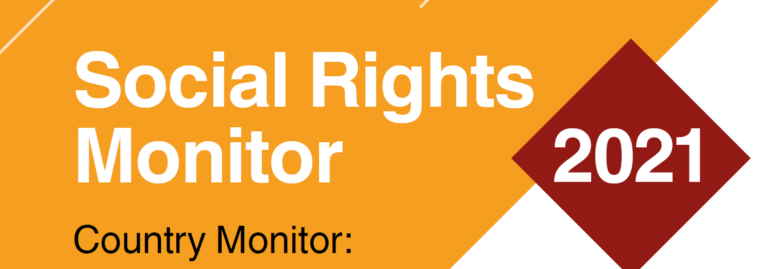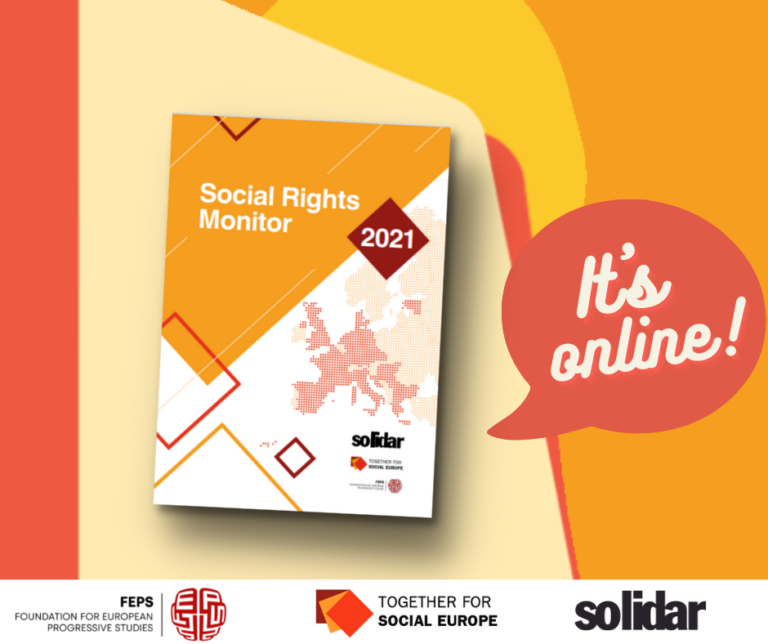Social Rights Monitor – Algeria
Recommendations
With the new partnership priorities, the EU and Algeria agreed to put the emphasis on reinforcing the role of civil society and women; promoting and protecting workers’ rights; reinforcing social bipartite and tripartite dialogue; supporting youth and boosting their energy; etc. However, from the social rights monitor, there is an overall perception that so far the EU agenda has remained largely focused on stability, giving priority to trade or security, while leaving aside social development and human rights. It is hence imperative for the EU in cooperation with Algeria to ensure coherence between commitments and implementation. It should adopt an inclusive and human right-based approach and acknowledge that stability lies in a complex interaction between several factors that go beyond mere security, and include economic, social and political elements.
The partnership priorities offer a new opportunity to ensure that the necessary steps are taken to achieve social justice and hence, stability in Algeria. In order to achieve these goals, we believe that the EU should support the Algerian government:
- In its engagement towards improving social protection (including access to health care and other essential services) by providing assistance and sharing good practices in order to simplify the procedure and build a clearer and more efficient structure. Efforts should aim to universalize social protection, so that all categories of people, including migrants, are covered and protected;
- In building capacities and knowledge on how to implement sound and proper monitoring and evaluation to assess ex-ante and ex-post social protection programmes. This will help respond to the needs of the population, achieve results and improve (income) security. This goes hand in hand with investing in the creation of regular, quality, accessible and reliable data;
- In formulating education and employment policies that are based on an assessment of the country’s needs. This also requires a better understanding of the scope and implications of the informal sector, which is responsible for insecurity in terms of wages, social protection, working conditions and human rights, in order to further seek solutions, possible regulations and more suitable forms of organization;
- In promoting a participatory and inclusive approach to civil society organizations to reinforce the trust between the government, the EU and the civil society and recognize them as key actors to deliver social services to the most vulnerable groups. Social justice can only be achieved within a society that is inclusive, where citizens can access the democratic process and play an active role in society. There must be a dialogue in place between public institutions and civil society organizations in order to guarantee the participation of all stakeholders in elaborating and monitoring public policy. The 2012 Law on Associations should be reviewed in order to remove barriers to civil society and protect freedom of association and the right to freely organize. The EU should effectively push for a more enabling and inclusive environment;
- To organize regularly and systematically collective bargaining that includes representatives of the governments, the employers and workers and provide more room for independent trade unions. Social dialogue should not be only limited to the public sector. More effort should be put into holding the private sector accountable by providing space to workers to voice their claims.
Moreover, the Algerian government should work on a clear definition of the poor. This would significantly help recognize poverty as a key issue to which the government should give higher priority. This would help avoid the automatic reduction of financing for social protection in general, including solidarity measures, in the case of austerity. In parallel, a clearer definition of poverty and vulnerability, and hence acknowledging that combating it is key to stabilizing the country and reinforcing social cohesion and integration, could be an incentive to further build sustainable resources for financing social protection, combined with ambitious employment policy.
It is in the interests of the EU to support the Algerian government in implementing appropriate social policies. It is only through an open, dynamic, engaged, solidarity-based society that stability and security in the country can be achieved.




